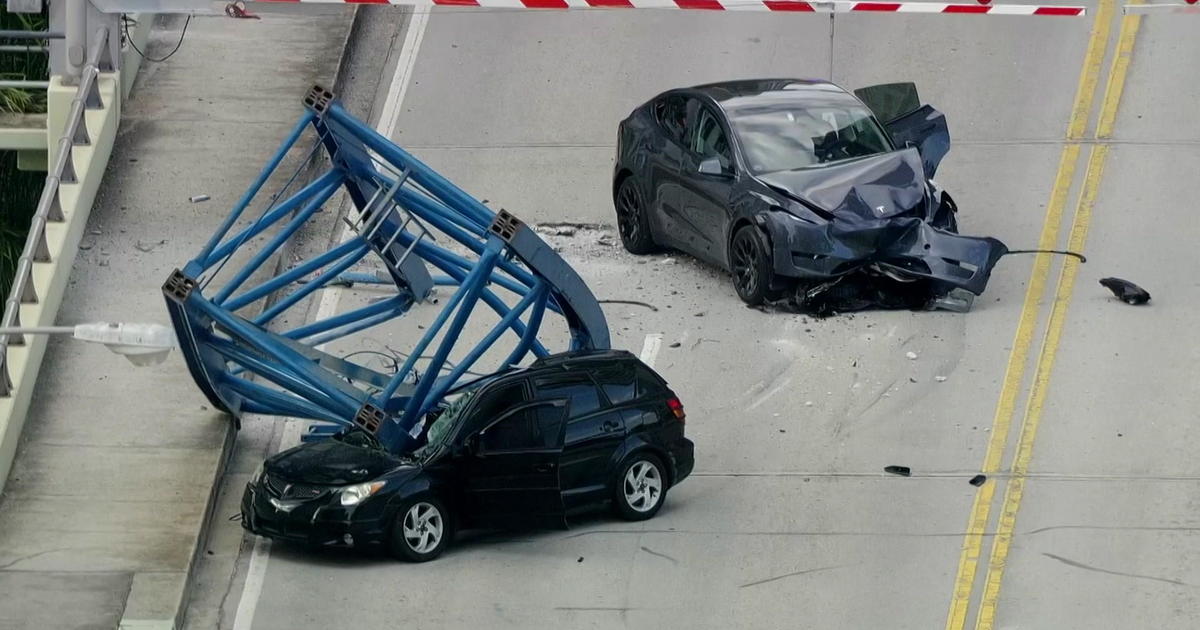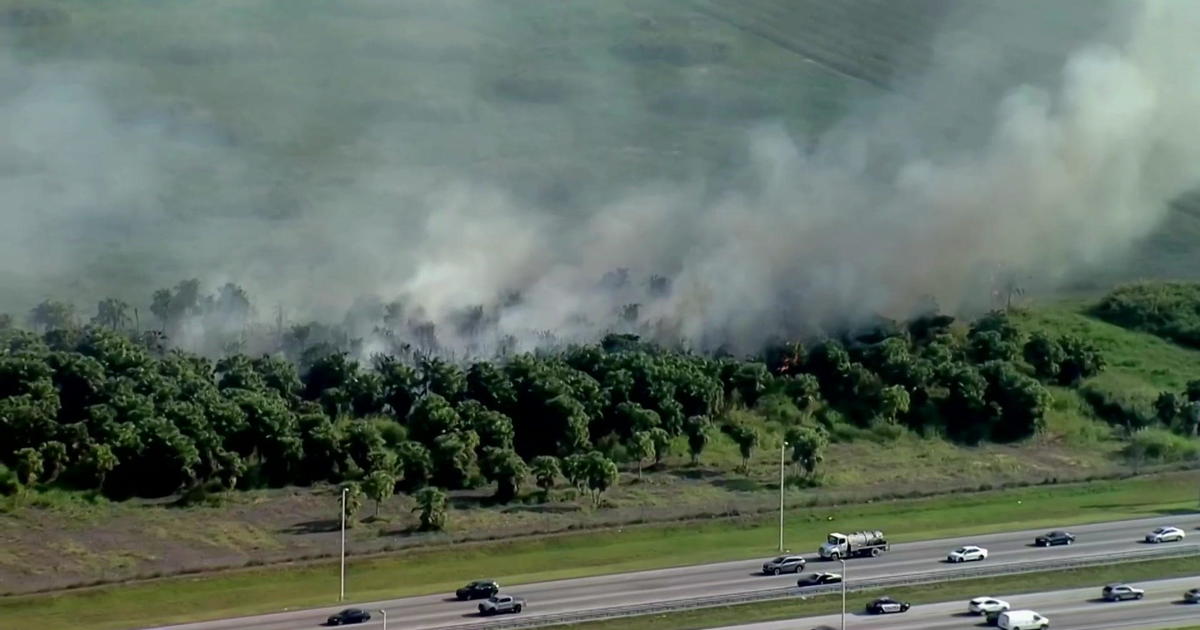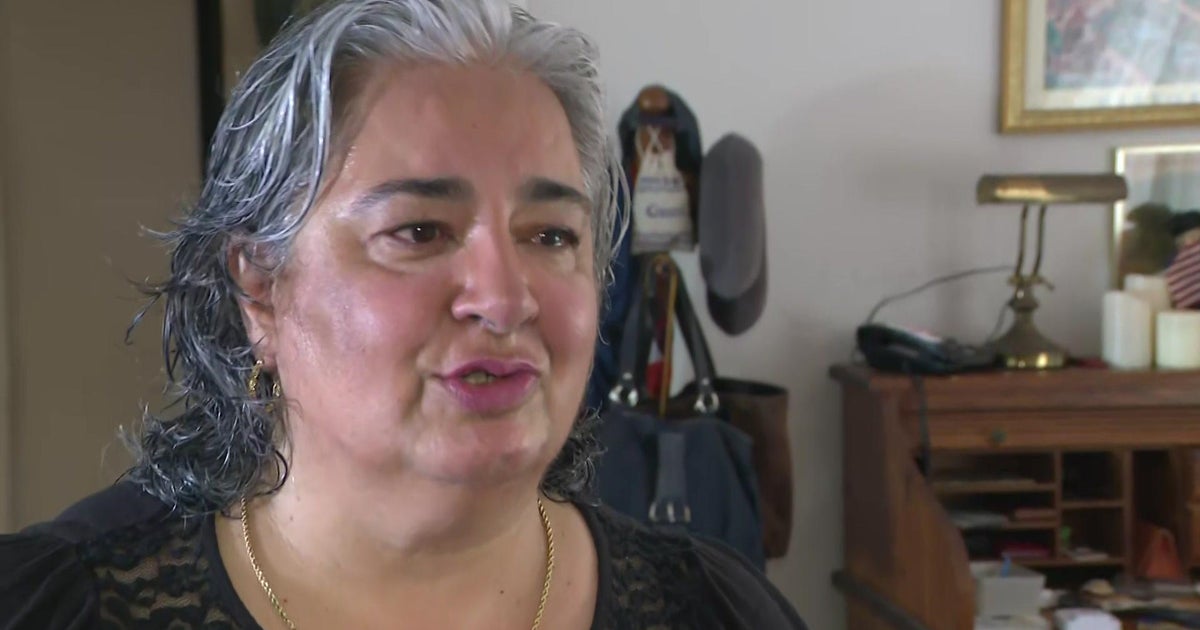South Florida Woman Files Lawsuit Over Recalled Airbag
Follow CBSMIAMI.COM: Facebook | Twitter
MIAMI (CBSMiami) – A South Florida woman wants drivers to take a massive recall of exploding airbags seriously.
"I have headaches, nausea and sometimes I lose my vision for a while. My sense of smell has been affected. I'm dealing with a lot of issues," said Claribel Nunez.
The hospital bill, 12 stitches and 20-days away from work all stemmed from a piece of metal according to Nunez.
Watch Oralia Ortega's report, click here.
It was nearly four-months ago when Nunez was involved in a crash while driving her 2001 Honda Civic.
"Someone hit the breaks in front of me and I hit them and the airbag deployed, flinging that piece of metal to my face. I was drowning in my own blood."
Nunez showed CBS4 News the inside of the Honda Civic and what those airbags look like.
"A piece from inside the airbag hit me in the face," Nunez explained.
To look into whether your vehicle is part of the recall, click here.
"If this would have been just a couple of inches lower, it could have gone right into her eye," explained the attorney for Nunez.
Jason Turchin filed a lawsuit for Nunez against Takata, the company that manufactures the airbag as well as auto giant Honda.
At least 10 auto makers including Honda, Toyota, Ford and BMW, just to name a few, are recalling certain model vehicles.
Flying metal from Takata airbags has been linked to at least four deaths and 30 injuries.
"The lawsuit is not just about money. It's about getting answers and trying to fix a problem if there is one. What we're concerned about is that Ms. Nunez isn't the only potential victim of an airbag issue and there may be many other potential victims out there," said Turchin.
The National Highway Traffic Safety Administration or NHTSA says nearly 8-million vehicles are affected.
After Nunez' close call, Claribel has a warning for those who receive a recall notice.
"Be very careful and go to the dealership to get the airbag replaced," said Nunez.
Many of the U.S. recalls have been limited to high-humidity areas in the South, but the boundaries of recall zones vary by manufacturer. All of this has confused car owners and even government safety regulators who published incorrect and incomplete lists of recalled models.
Here are some questions and answers about the recalls:
Q: What is the problem here?
A: Chemicals that quickly inflate air bags during a crash are exploding with too much force in Takata air bags made from 2001 to 2011. This blows apart metal canisters around the air bags and sends fragments into passenger compartments.
Q: Has anyone been injured or killed?
Safety advocates say there have been four deaths and multiple injuries. The government has reports of three injuries and is investigating.
Q: How can I find out if my car is included?
A: Dozens of models made by BMW, Chrysler, Ford, General Motors, Mazda, Honda, Mitsubishi, Nissan, Subaru and Toyota dating to the 2001 model year are covered. You should have received a recall notice from your automaker. Also, you can go to www.safercar.gov and key in your vehicle identification number, which normally is printed on your registration and stamped on the dashboard. That will tell you if your car is being recalled. You can also call your dealer. Honda is a big Takata customer, and has recalled over 5 million vehicles in the U.S. alone.
Q: Why are so many cars involved?
A: Takata makes 22 percent of the world's air bags, according to Valient Automotive Market Research.
Q: Why are some of the recalls just in areas with high humidity?
A: Investigators believe that prolonged exposure to moisture in the air makes the inflator chemicals burn too fast, creating too much pressure. They're still doing tests of inflators replaced by dealers to figure out how much humidity is enough to cause the problem. Depending on the results, the recall areas could be expanded. So far the U.S. National Highway Traffic Safety Administration hasn't found any problems outside of the following areas: Florida, Puerto Rico, limited areas near the Gulf of Mexico in Texas, Alabama, Mississippi, Georgia, and Louisiana, as well as Guam, Saipan, American Samoa, Virgin Islands and Hawaii.
Q: Why doesn't the government just order a national recall?
A: Some lawmakers want one. But NHTSA says so far the problem has been found only in high-humidity areas. Plus, a national recall would divert a limited number of replacement parts from states where regulators say the need is most urgent.
Q: I live outside the recall areas, but the humidity is still high. Is my car safe?
A: This is still under investigation and has some car owners confused and worried. Investigators think they have found a concentration of defective inflators inside the recall zone. Generally the areas covered by the recalls have average annual dew points (the temperature at which moisture condenses out of the air) above 60 degrees. But there are still a lot of humid locations outside those areas. Government data show several Southern cities outside the recall zone with average dew points just a few degrees under 60. Dew points exceed 60 degrees during the summer in many northern cities such as New York and Boston. Scott Hildebrand, a heating and air conditioning contractor in Bluffton, South Carolina, believes that if Toyota is recalling Corollas in Florida, it should recall the two in his driveway near Hilton Head. "There's not much difference in the humidity between here and there," he says. "If somebody in my family got hurt by it, yes, that would be a big problem." Hildebrand is trying to find out if his cars have Takata air bags.
Q: What's next?
A: NHTSA investigators are working with Takata and automakers to test more air bags as cars come in for repairs. They're also watching crash reports. But they're not sure how long it will take to find the problem and set boundaries for the recalls.
(TM and © Copyright 2014 CBS Radio Inc. and its relevant subsidiaries. CBS RADIO and EYE Logo TM and Copyright 2014 CBS Broadcasting Inc. Used under license. All Rights Reserved. This material may not be published, broadcast, rewritten, or redistributed. The Associated Press contributed to this report.)
RELATED CONTENT:



